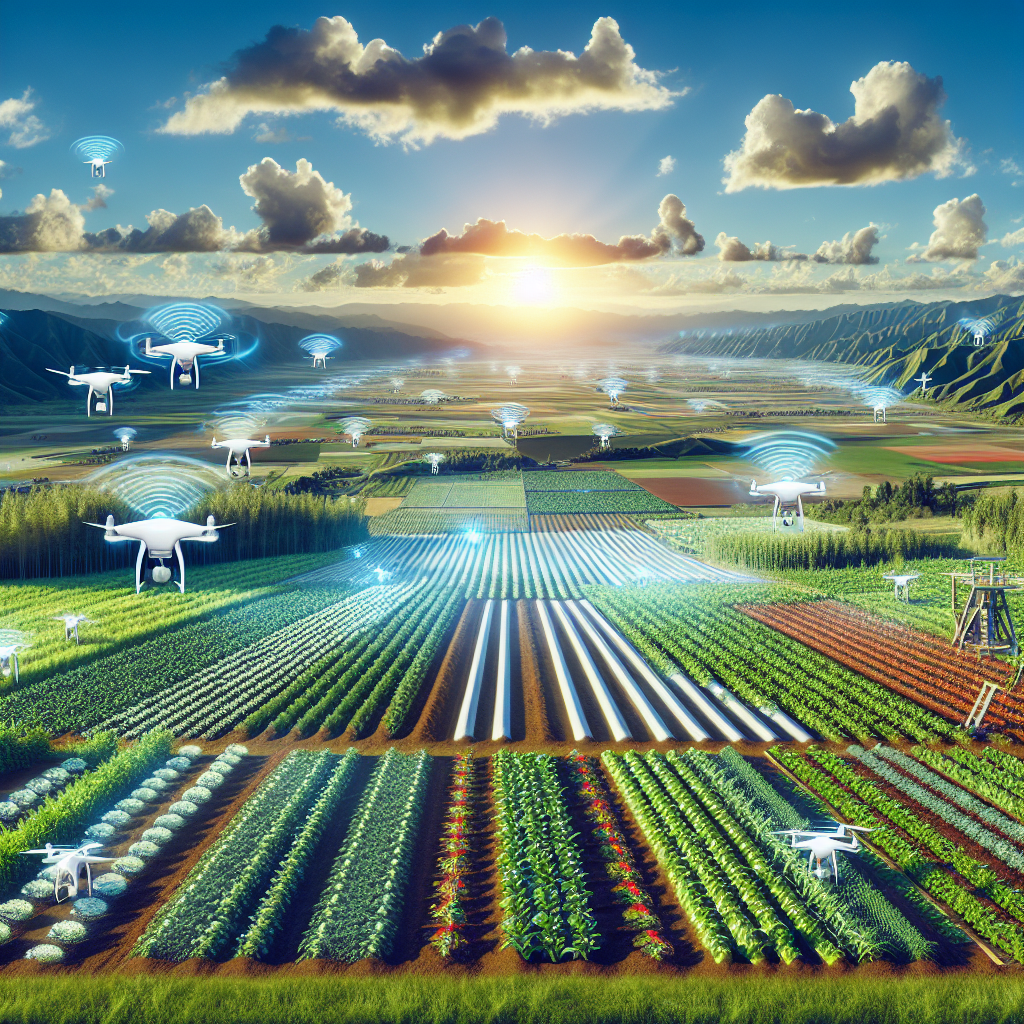The Role of AI in Sustainable Agriculture
In recent years, the agricultural industry has seen a significant shift towards sustainable practices in order to reduce environmental impact and ensure long-term food security. One of the key tools driving this change is artificial intelligence (AI), which is being used to optimize crop production, reduce waste, and improve overall efficiency in agriculture.
AI in agriculture involves the use of machine learning algorithms and data analytics to analyze and optimize farming practices. By collecting and analyzing data from various sources such as satellite imagery, weather forecasts, soil samples, and crop health sensors, AI can provide farmers with valuable insights to make informed decisions about their operations. This includes optimizing irrigation schedules, predicting crop yields, identifying crop diseases, and even automating certain tasks such as weeding and harvesting.
One of the main benefits of AI in agriculture is its ability to increase productivity while reducing resource use. By optimizing inputs such as water, fertilizer, and pesticides, AI can help farmers achieve higher yields with fewer resources, ultimately leading to reduced costs and environmental impact. In addition, AI can help farmers respond more quickly to changing environmental conditions such as droughts or pest outbreaks, allowing them to adapt their practices in real-time to minimize losses.
Another important role of AI in agriculture is in the development of precision farming techniques. Precision farming involves using data-driven insights to tailor farming practices to specific areas of a field, rather than treating the entire field as a homogenous unit. By using AI to analyze data such as soil composition, moisture levels, and crop health, farmers can apply inputs more precisely, leading to better yields and reduced waste. This not only improves the sustainability of farming practices but also helps to increase profitability for farmers.
AI is also being used to improve the quality and safety of agricultural products. By analyzing data on crop health and soil conditions, AI can help farmers identify potential contaminants or pathogens in their produce, allowing them to take corrective action before products reach consumers. This can help to reduce the risk of foodborne illnesses and improve consumer confidence in the safety of agricultural products.
Overall, the role of AI in sustainable agriculture is to help farmers make better decisions, optimize resource use, and improve overall efficiency in their operations. By harnessing the power of data and machine learning, AI can help to transform the agricultural industry and create a more sustainable food system for the future.
FAQs:
Q: How is AI being used in crop monitoring?
A: AI is being used in crop monitoring by analyzing data from various sources such as satellite imagery, weather forecasts, and crop health sensors to provide farmers with real-time insights into the health and growth of their crops. This allows farmers to identify issues such as pest outbreaks or nutrient deficiencies early on and take corrective action to prevent crop losses.
Q: Can AI help to reduce water usage in agriculture?
A: Yes, AI can help to reduce water usage in agriculture by optimizing irrigation schedules based on real-time data such as soil moisture levels and weather forecasts. By using AI to tailor irrigation practices to specific areas of a field, farmers can reduce water waste and improve crop yields.
Q: How is AI being used in pest management?
A: AI is being used in pest management by analyzing data on pest populations, crop health, and environmental conditions to predict and prevent pest outbreaks. By using AI to monitor and respond to pest threats in real-time, farmers can reduce the need for chemical pesticides and minimize the impact of pests on crop yields.
Q: What are the challenges of implementing AI in agriculture?
A: Some of the challenges of implementing AI in agriculture include the high cost of technology adoption, the need for reliable data sources, and the lack of technical expertise among farmers. Additionally, there may be concerns about data privacy and security when using AI to collect and analyze sensitive information about farming operations.
Q: How can farmers benefit from using AI in agriculture?
A: Farmers can benefit from using AI in agriculture by improving productivity, reducing resource use, and increasing profitability. By harnessing the power of data and machine learning, farmers can make more informed decisions about their operations and optimize their practices to achieve better results. This can help to create a more sustainable and efficient food system for the future.

